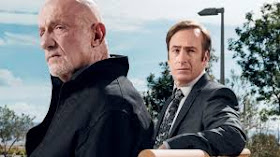What makes Happy Valley so gripping is that the characters are believable. This is particularly true of the lead, Police Sergeant Catherine Cawood (played by Sarah Lancashire), someone it wouldn’t be at all surprising to meet in the aisle of a local supermarket. Or, more accurately, a local supermarket in a small Yorkshire town – Lancashire fits perfectly into the setting of the series, both by accent and by attitude.
 |
| Catherine Cawood: a great invention in TV fiction Not always bubbling over with joy |
Prostitutes are being murdered and shamefully mutilated in a Yorkshire village. Meanwhile the son of a widowed sheep farmer is being picked on by local youths who are making his life a misery. Sadly, the police can do little about it, not even Sergeant Cawood. She is, in any case, increasingly drawn into the murder investigation, and into the related crime of people-trafficking for the purposes of prostitution – one of the most engaging themes of the series is her work to protect one of the trafficked women.
What’s particularly baffling is that one of the murders, though it involves the same kind of mutilation, doesn’t fit the pattern. We the viewers know why it’s different; the police, however, assume that it is just one more in the same series, and not just because of a failure on their part, but because they’re being deliberately misled.
What links all these threads is Cawood, who begins to pull them together (even the sheep farmers) – while at the same time having to deal with the latest vicious persecution by the man who drove her daughter to suicide after leaving her pregnant. Despite being in gaol, is able to exercise a terrible threatening pressure on Cawood, her family and friends through a woman who has fallen under his spell – played by one of the least sinister of actors, Shirley Henderson, who managers for the purposes of this role to be one of the most sinister of characters.
The third season of Line of Duty has proved to be by far the best so far. Again, there is less violence than in the earlier seasons, though it’s by no means violence-free: indeed, the season starts with a criminal fleeing from an armed police unit, whose leader is the first to catch up with him – and then executes him in deliberate cold blood. He orders his team to cover up for him, but the anti-corruption unit AC-12 smells a rat and starts an investigation. Another brutal murder, this time involving torture also occurs – and then, to our consternation, one of the AC-12 officers, Detective Inspector Matt Cottan (Craig Parkinson), the one we’d learned to suspect from the earlier seasons, destroys a piece of evidence.
 |
| Martin Compston and Vicky McClure Excellent in Line of Duty, though also not a bundle of laughs |
That episode is dominated by two great examples of the kind of scene the series does best –interrogations – and, more sadly, an unintentionally hilarious car chase. It ends up with McClure chasing the criminals’ SUV on foot. Fortunately, the SUV manages to travel round in circles for several minutes, giving her several cracks at shooting at it. It’s quite an amusing scene, and helps create a good ending, but it lacks – well, credibility.
 |
| Jonathan Banks and Bob Odenkirk Better Call Saul: plenty of dry humour |
His life also repeatedly touches on that of ex-policeman Mike Ehrmantraut (Jonathan Banks) constantly obliged to swim in the shark-infested waters of the local drug gangs, with their ruthless viciousness. But he proves himself repeatedly fully equipped with excellent teeth himself and more than prepared to use them himself – with great skill.
Three great series. If you haven’t see them, make a point of it.
PS – a fine film to go with the series: While you’re at it, see if you can get a look at The Wipers Times. Wipers is what the British Tommy called Ypres, in North West Belgium, scene of some of the more blood-drenched incidents of the blood-drenched First World War.
A Captain Frederick Roberts (played by Ben Chaplin) and Lieutenant John Pearson (Julian Rhind-Tutt), of the 12th Batallion of the Sherwood Foresters, came across an abandoned printing press. They decided to get a newspaper out for the troops. Since they were subject to transfers, what started as the Wipers Times later became the Somme Times and various other Times, even at the end of the war, Better Times. It was irreverent and magnificently funny. An example:
Realizing Men must laugh,
Some Wise Man devised the Staff :
Dressed them up in little dabs
Of rich variegated tabs :
Taught them how to win the War On A.F.Z. 354 :
Let them lead the Simple Life
Far from all our vulgar strife :
Nightly gave them downy beds
For their weary, aching heads :
Lest their relatives might grieve
Often, often gave them leave,
Decorations too, galore :
What on earth could man wish more?
Yet, alas, or so says Rumour,
He forgot a sense of Humour!
The film, a drama based on the real events, captures all of this rich mix and is well worth seeing.
 |
| The Wipers Times editorial staff |
No comments:
Post a Comment